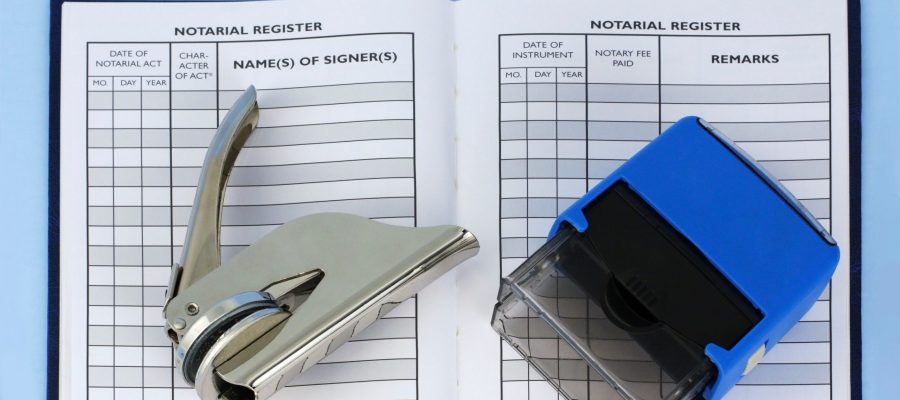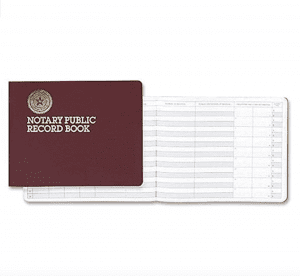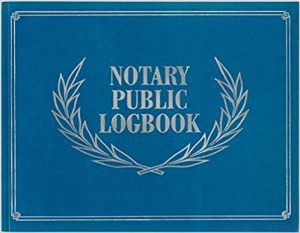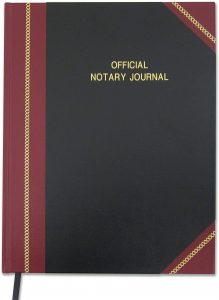The Best Notary Public Record Book

Our Review Process
Don't Waste Your Money is focused on helping you make the best purchasing decision. Our team of experts spends hundreds of hours analyzing, testing, and researching products so you don't have to. Learn more.
Our Picks For The Top Notary Public Record Books
- 1. Dome Softcover Notary Public Record Book
- 2. Peter Pauper Press Lie-Flat Binding Notary Public Record Book
- 3. Jason Soft Floral Print Cover Notary Public Record Book
- 4. Sweet Marigold Books Marble Print Softcover Notary Public Record Book
- 5. Ulysses Press One-Per-Page Large Type Notary Public Record Book
- 6. BookFactory Acid-Free Paper Hardbound Notary Public Record Book
You’ll get 60 numbered pages, giving you room for 522 entries and thumbprints, in this notary public record book. The sewn binding ensures pages stay in place long after the pages have been filled for years of reliable bookkeeping. The sample page with instructions is great for walking new notaries through procedures.
Great for NewbiesA page with instructions helps guide you through what you need to record as you start your notary journey.
With 144 numbered pages, offering 568 numbered entries, this is a record book that will help log plenty of notary activities. The lie-flat binding and larger boxes per page makes this an easy book to use. The paper is acid free to ensure the records can be stored for years after they’ve been logged.
Easy to UseThis notary public book offers plenty of extra space for signatures and necessary information.
The cover of this notary public record book features a floral design that shows your personal style. It includes two records per page, giving you plenty of room for logging all the details. If you’re looking for a basic book to capture your notary activities, this is worth considering.
Attractive DesignThe floral cover of this record book sets it apart from other notary ledgers.
With this book, you get more than 100 pages for recording your notary activities. It measures 8.5” x 11”, making it handy to store along with your other books. You’ll get two records per page and a page that can include your name and your contact information.
Classy and ElegantThe marble-print cover makes this notary public record book a classy option.
Buying Guide
The designation of notary public comes with serious responsibility. You’ll have to follow all local laws when you notarize documents, including verifying the identity of those whose documents you’re notarizing.
But one of the most laborious tasks related to being a notary is recordkeeping. You, as the notary, will need to be able to answer for any documents you’ve notarized. If an issue arises, it’s important that you absolve yourself from responsibility by showing that you followed all local laws in performing your duties.
The best way to document your notarial activities is through the use of a record book. Some states allow you to keep this record electronically, but in others, it will have to be a bound journal. Even when electronic documents are allowed, though, it may be easier to rely on pen and paper, especially if you’re often asked to notarize documents on the go. You won’t always have access to the recordkeeping documents you use to record your notary activities. A notary book can help you keep track of the documents you notarize, both for your own tracking purposes and for backup in case you ever need it.
You’ll have a wide range of choices when you’re ready to buy a notary public record book. It’s important to consider your own unique preferences while also keeping an eye on local laws. You can find a journal that will track things the way you prefer to track them. Some have larger signature lines than others, for instance, and some have more records per page than others.
When looking at a notary book, pay close attention to the binding. You’ll likely want a book with binding that’s built to last, but it can also come in handy to have binding that allows you to lay the book flat. This can make recordkeeping easier.
What to Look For
- Before you buy a notary record book, check your own state’s laws to make sure you’re getting one that keeps you in compliance. Laws for recordkeeping can vary dramatically from one state to the next, so it’s important to pay attention to what your local government requires.
- Securing your notary record book is essential. If the information falls into the wrong hands, you could be seen as negligent. Some states have laws stating that notaries must keep records “under lock and key” when not in use. Find a safe place to store it and keep the key in a secret but accessible location.
- In some cases, you’re asked to turn your notary records into your state’s commissioning authority. Check your state’s laws on this.
- Security is a top priority with notarizing documents. To protect the privacy of previous clients, try to avoid showing the information to the next person whose documents you’re notarizing. You can use cardboard to cover it for privacy. Some record books provide one record per page to offer this type of security.
- Each record book has a set number of pages, with a number of records per page. Consider how frequently you’ll use your notary public designation. If you’ll be notarizing often, you might find a book that gives you plenty of entries will be more convenient than keeping up with numerous books.
- If you’re new to notarizing, some record books provide instructions to make it easy for beginners.
- The integrity of your records is important, but paper and ink can degrade over time. Acid-free paper can help keep records fresh in case you’re called to provide the information.
- You’ll find a wide range of covers on record books. Some are more whimsical than others, but you might prefer to express your personal style with your recordkeeping.
- Make sure your contact information is logged in the book somewhere. If your book should somehow become lost, this will make it easier to track it back to you.
More to Explore
Recordkeeping has been around throughout history, with the earliest form of notaries appearing in Ancient Egypt. These recordkeepers were called scribes and were responsible for all forms of official paperwork, from proclamations and tax records to personal letters.
But the first true notary was seen during the Roman Empire, when a Roman slave named Tiro came up with a shorthand system for jotting down Cicero’s speeches. Other notaries soon followed, going by the terms notarii and scribae. Since literacy wasn’t mainstream at the time, notaries were paid to prepare wills and contracts and other important documentation. Demand for notaries picked up from there, and the practice evolved over time to the notaries we know today.















